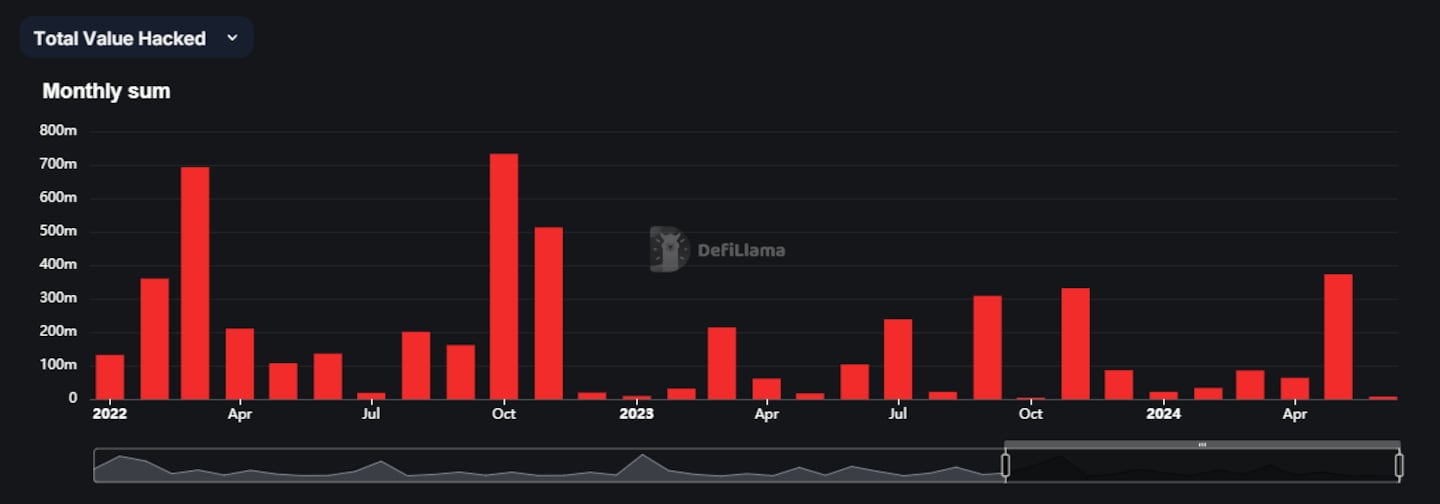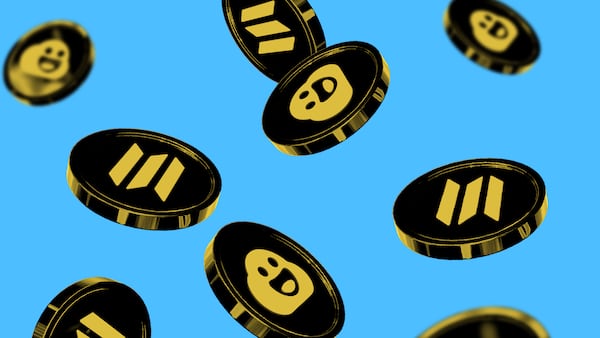A version of this article appeared in our The Decentralised newsletter on June 11. Sign up here.
GM, Tim here.
Here’s what caught my DeFi-eye recently:
- ZKsync’s token goes live next week.
- Railgun Project co-founder talks to the feds.
- A DL News journalist shares his story about getting hacked.
ZKsync’s token launch
ZKsync’s long-awaited token launch is imminent.
In a Tuesday blog post, ZK Nation released details on how it will allocate 21 billion ZK tokens on June 17.
17.5% of the supply will be distributed through an airdrop, with another 49.5% going to the ZKsync community.
Alex Gluchowski, the co-founder and CEO of Matter Labs, the company behind ZKsync, emphasised the ZK token’s utility in an interview with DL News.
“It’s not a financial thing,” he said. “It’s really a governance token.”
Users who transacted on the ZKsync Lite and ZKsync Era networks will be eligible for the airdrop.
Actions such as holding ZKsync NFTs, ZKsync-native tokens, and using popular Ethereum mainnet DeFi apps will increase the number of tokens users receive.
ZK Nation is a newly-set up organisation for the purpose of governing and growing the ZKsync protocol.
ZK token holders will be able to propose and vote on initiatives that govern ZKsync.
“The community will have the power to use it also as a payment means,” Gluchowski said, adding that ZKsync community members could vote to add further functionality to the token.
Token holders won’t, however, get full control.
Two other factions, called the ZKsync Guardians and the ZKsync Security Council, will also have the power to veto proposals and approve emergency actions.
Railgun Project interview
Railgun Project co-founder Alan Scott sat down with DL News to talk about educating authorities on what Railgun contributors are doing to stop bad actors.
The Railgun Protocol has a feature called Proof of Innocence that lets honest users prove the money they put into the protocol didn’t come from stolen funds or illicit activity.
Currently, Proof of Innocence only flags crypto addresses that the Office of Foreign Assets Control has put on its sanctions list, but Scott said Railgun contributors want to change that.
Contributors are working on a secure way to allow law enforcement and crypto security experts to update the list of bad actors in real time — even if the addresses are not yet on the official OFAC list.
A $45,000 mistake
DL News’ Osato Avan-Nomayo recounts the painful theft of $45,000 after a hacker infected his computer with malware.
Osato told the story of how he promised to help a younger relative download a computer game.
But when the relative grew impatient and tried to do it himself, he downloaded a version of the game embedded with malware.
The malware probably installed a keylogger — a programme that records keystrokes — and exposed his wallet details, which allowed the hacker to syphon out the crypto.
Osato disclosed the hack publicly, not only to warn other potential victims, but also to help highlight the need for better safeguards.
If broad-based crypto adoption is the goal, Osato says, then safely storing digital assets needs to become simpler, especially for those who prefer self-custody.
Data of the week
May was the worst month for crypto hacks since November 2022.
The $305 million hack suffered by Japanese crypto exchange DMM Bitcoin made up the majority of the losses.

This week in DeFi governance
VOTE: Arbitrum DAO votes on ventures initiative pilot phase
PROPOSAL: Aave DAO discusses Lido-focused Aave v3 instance
VOTE: Compound to launch USDT market on Optimism
Post of the week
A recent interview where Australian rapper Iggy Azalea’s expresses scepticism over where Ethereum gas fees go has spawned a new meme — and Crypto Twitter is putting it to good use.
They're called "decentralized autonomous organizations" but basically the team and the investors decide every vote pic.twitter.com/gis2mLaWoV
— karbon 🐺🦊 (@basedkarbon) June 8, 2024
What we’re watching
#CertiKInsight 🚨
— CertiK Alert (@CertiKAlert) June 10, 2024
We are seeing multiple exploit transactions affecting @UwU_Lend
0x841dDf093f5188989fA1524e7B893de64B421f47 is currently holding ~$19.4m of assets pic.twitter.com/b8KeHdZche
DeFi protocol UwU Lend was exploited on Monday for $19.4 million using a flash loan.
Got a tip about DeFi? Reach out at tim@dlnews.com.







